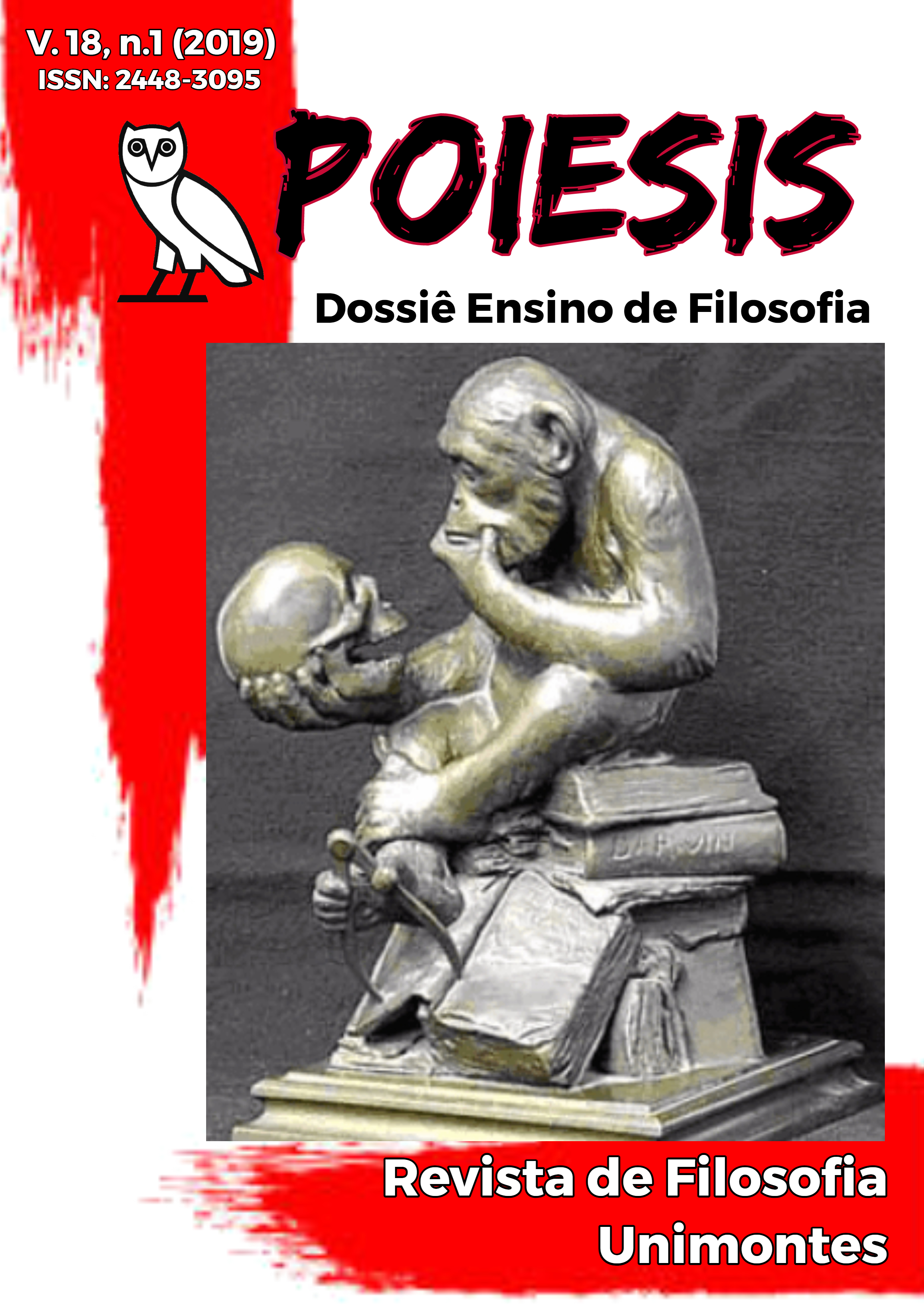Philosophy and citizenship
The philosopher’s presence in the world and his educative importance
Keywords:
Philosophy. Education. Politic. Citizenship. Society.Abstract
Ever since the Franch Revolution, the men’s position in society soffered deep changes; the man passed onto be seened as a political agent, different of the way he was seen before, the subject became citizen. In the old regime, people were subjected unable to take part in the debate of public matters as the sovereign was the bearer of a divine mandate to rule and could not me questioned. The differential of the citizen is that, to take part inthe public debate, he must pass through a educative process capacitate him to public life, assisting him to develope the critical sense requiered to offer the most adequate contibuition to the State’s development. In this new scenario, what is the philosophy’s importance importance to the society’s enhancement and better qualification on public debate? In the capacitation process that turn the men into citizen, the philosopher have a very peculiar role wich is detached since the antiquity: the man must disentangle himself of the beliefs set that keep him stuck at a life of illusions. The philosopher, as an educator, has the function to destroy such beliefs and take men to a vision rational world’s. The philosopher, then, have the function to provoque the opennin of the minds and to show the value of the world and history critical visions, making that the citizen have the capacity to put himself in the public debate and present his demands.
Downloads
References
BIGNOTTO, Newton. Maquiavel republicano. São Paulo: Loyola, 1991.
JAEGER, Werner. Paidéia: a formação do homem grego. Trad. Artur M. Parreira. São Paulo: Martins Fontes, 1995.
MAQUIAVEL, Nicolau. O príncipe. Trad. Maurício Santana Dias. São Paulo: Companhia das Letras, 2010.
____________. Discursos sobre a primeira década de Tito Lívio. Trad. Martins Fontes. Revisão: Patrícia Fontoura Aranovich. São Paulo: Martins Fontes, 2007.
REALE, Giovanni; ANTISERI, Dario. História da filosofia: filosofia antiga pagã, v. 1. Trad. Ivo Stomiolo. São Paulo: Paulus, 2003.
RODRIGO, Lídia Maria. Maquiavel: educação e cidadania. Petrópolis, RJ: Vozes, 2002.
SKINNER, Quentin. As fundações do pensamento político moderno. Revisão: Renato Janine Ribeiro. São Paulo: Companhia das Letras, 1978.
VERNANT, Jean Pierre. As origens do pensamento grego. Trad. Ísis Borges B. da Fonseca. Rio de Janeiro: Difel, 2002.
Downloads
Published
How to Cite
Issue
Section
License
Copyright (c) 2021 Revista Poiesis

This work is licensed under a Creative Commons Attribution-NonCommercial-NoDerivatives 4.0 International License.





.png)

